
In 2008, I traveled to the world's largest scientific data-centers for a @Nature story. No matter whether the labs were devoted to internet archiving, the human genome, or the Higgs boson, they had two things in common: vast server farms, and @xkcd.
nature.com/news/2008/0809…
1/
nature.com/news/2008/0809…
1/
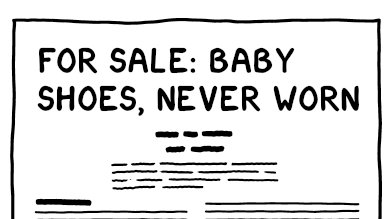
Randall Munroe's webcomic is so unabashedly geeky, so unafraid to be obscure or format-breaking, so affectionate and knowing about the triumphs and pitfalls of science that it is absolute catnip for scientists.
2/
2/
Last week, Munroe published strip #2456, "Types of scientific paper," a 3x4 grid of thumbnails of journal articles with titles like, "We put a camera somewhere new" and "My colleague is wrong and I can finally prove it."
xkcd.com/2456/
3/
xkcd.com/2456/
3/

Even by XKCD standards, this is heavy scientist-bait. The research community has risen to the challenge, flooding the net with remixes that are, if anything, even better than the original: works of microfictional genius to rival Hemingway's "For sale: baby shoes, never worn."
4/
4/
Many of these have been collected on @bruces' Tumblr blogs, and, taken as a body, they constitute an act of wry, insightful auto-ethnography - self-criticism wrapped in humor that tells a story.
5/
5/
"Types of Paper in Epidemiology and Public Health"
* We counted how many people have a disease, here are maps with poor countries in red
* We found that if you call your research 'genetic epidemiology,' then people are surprisingly OK with eugenics
brucesterling.tumblr.com/post/650002102…
6/
* We counted how many people have a disease, here are maps with poor countries in red
* We found that if you call your research 'genetic epidemiology,' then people are surprisingly OK with eugenics
brucesterling.tumblr.com/post/650002102…
6/

"Types of History Paper"
* Stuff happened: a chronology 1910-1974
* They missed so much stuff, it's honestly embarrassing 1910-1974
* I am so tired of stuff scholarship
* Wokeness is killing stuff scholarship! A senior scholar weighs in
brucesterling.tumblr.com/post/650002102…
7/
* Stuff happened: a chronology 1910-1974
* They missed so much stuff, it's honestly embarrassing 1910-1974
* I am so tired of stuff scholarship
* Wokeness is killing stuff scholarship! A senior scholar weighs in
brucesterling.tumblr.com/post/650002102…
7/
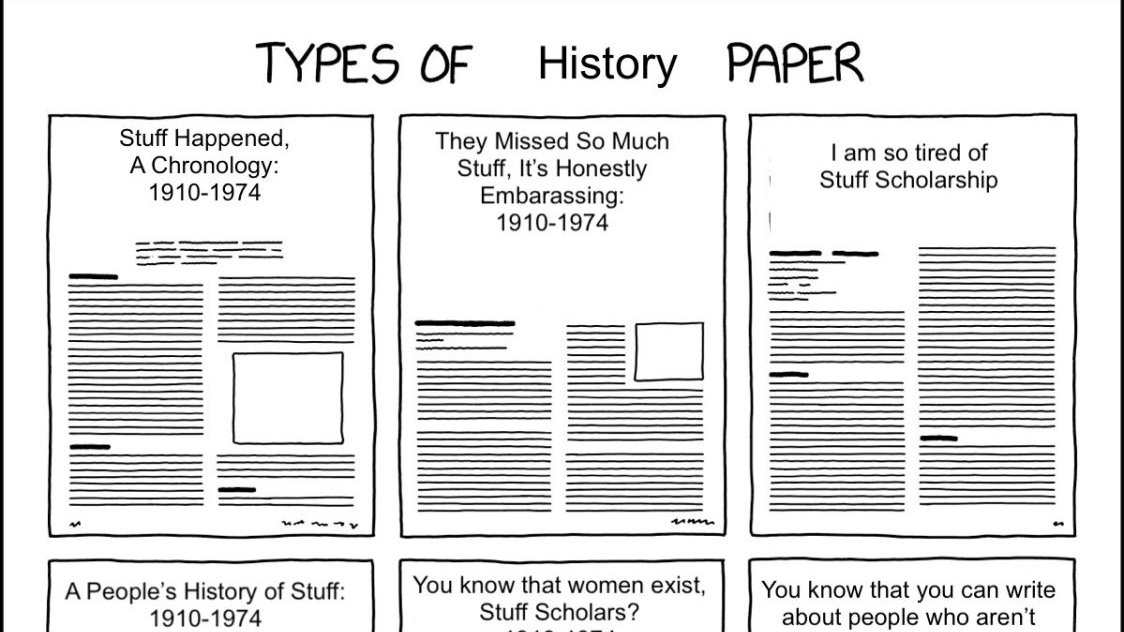
"Types of Glaciology Paper"
* The ocean is doing a bunch of weird stuff to this glacier
* Why is it doing that: the wild physics
* Why is it doing that: now with machine learning
* We found a glacier that's doing fine! Oh, wait, nevermind
brucesterling.tumblr.com/post/650002102…
8/
* The ocean is doing a bunch of weird stuff to this glacier
* Why is it doing that: the wild physics
* Why is it doing that: now with machine learning
* We found a glacier that's doing fine! Oh, wait, nevermind
brucesterling.tumblr.com/post/650002102…
8/

"Types of Entomology Paper"
* This pesticide is completely safe, says one very restricted metric
* This pesticide will kill us all: extrapolation from irrelevant data
* 39,000 new parasitic wasps
brucesterling.tumblr.com/post/650002102…
9/
* This pesticide is completely safe, says one very restricted metric
* This pesticide will kill us all: extrapolation from irrelevant data
* 39,000 new parasitic wasps
brucesterling.tumblr.com/post/650002102…
9/
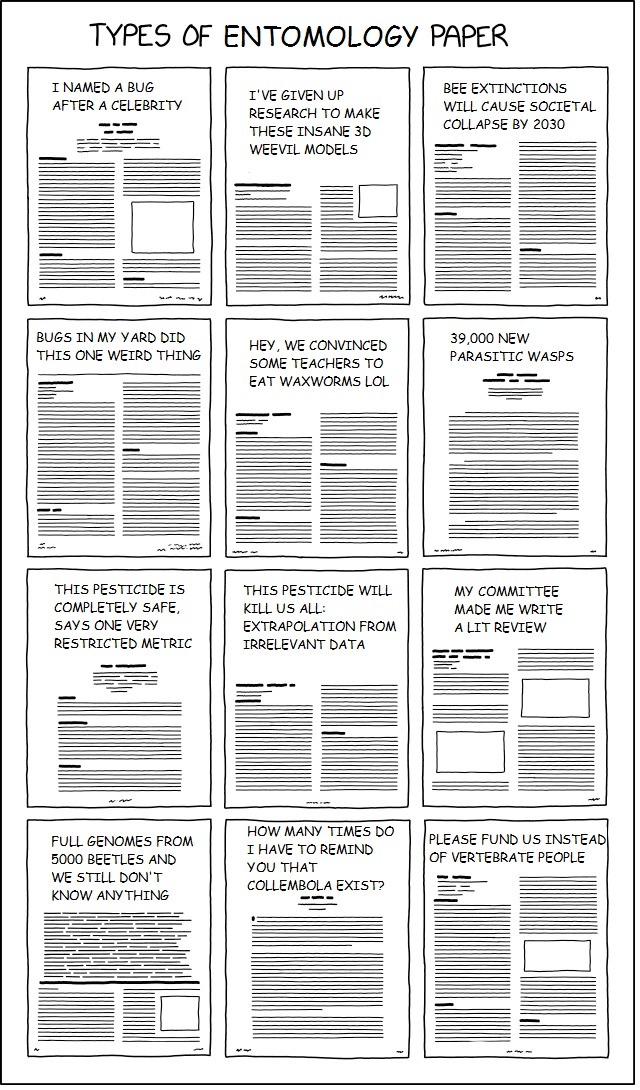
"Types of Climate Science Paper."
* Here's a bad thing about climate change you hadn't even thought about
* Did any of you guys take a statistics course?
* Things are definitely worse than we thought
* Things are definitely better than we thought
brucesterling.tumblr.com/post/650002179…
10/
* Here's a bad thing about climate change you hadn't even thought about
* Did any of you guys take a statistics course?
* Things are definitely worse than we thought
* Things are definitely better than we thought
brucesterling.tumblr.com/post/650002179…
10/
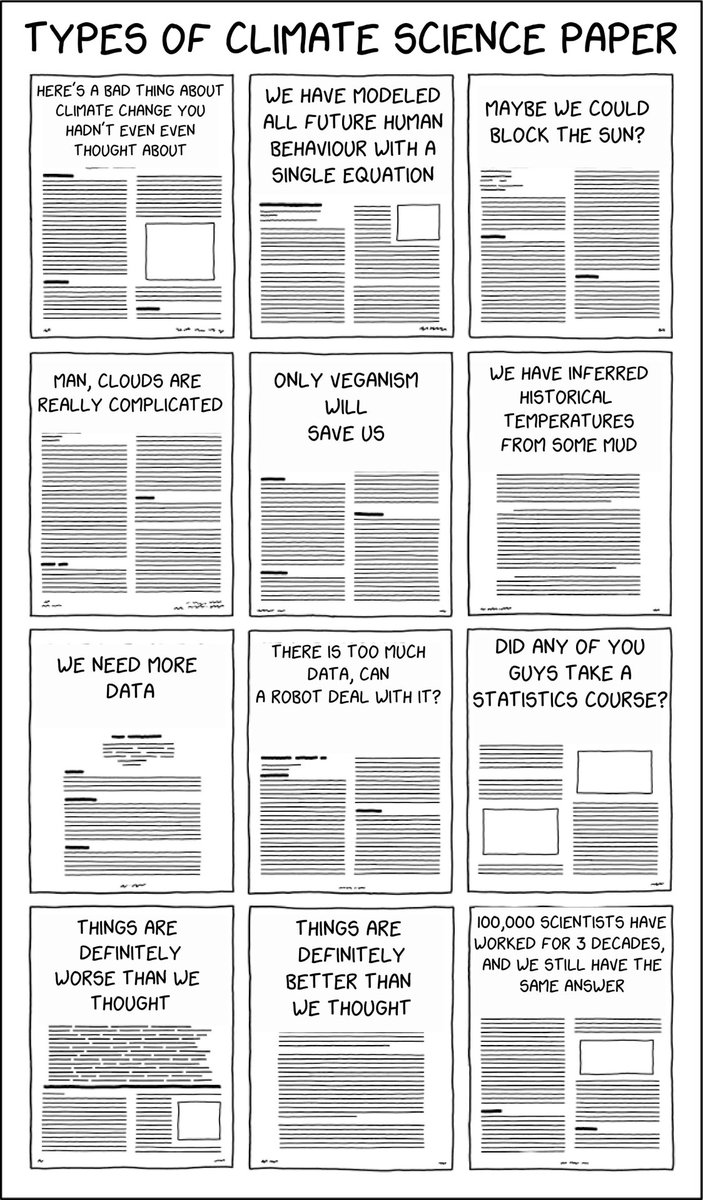
"Types of Quantum Computing Paper"
* Simulating our system with our system
* We've solved QC with our new scripting language
brucesterling.tumblr.com/post/650002179…
11/
* Simulating our system with our system
* We've solved QC with our new scripting language
brucesterling.tumblr.com/post/650002179…
11/
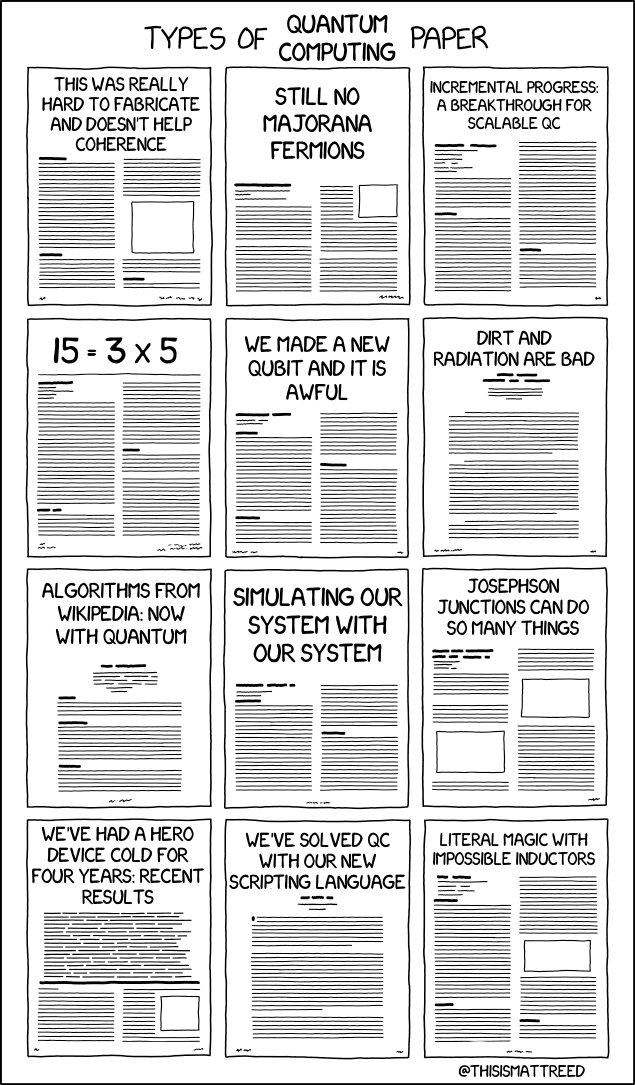
"Types of Remote Sensing Papers"
* We saw stuff on the ground from space
* We saw stuff on the ground better from space
* What's that? Let me see if I can see it from space
* Have you tried neural networks though?
brucesterling.tumblr.com/post/650002179…
12/
* We saw stuff on the ground from space
* We saw stuff on the ground better from space
* What's that? Let me see if I can see it from space
* Have you tried neural networks though?
brucesterling.tumblr.com/post/650002179…
12/

"Types of Building Energy Papers"
* Expensive material improves building efficiency
* Stop climate change by rebuilding all buildings this way
* Insulate all things
wolfliving.tumblr.com/post/650004947…
13/
* Expensive material improves building efficiency
* Stop climate change by rebuilding all buildings this way
* Insulate all things
wolfliving.tumblr.com/post/650004947…
13/

"Types of Housing Papers"
* Why tech workers deserve condos with better walk scores
* Design students' yurts will end poverty
* Supportive housing costs less than boiling poor people in oil and it's more efficient
wolfliving.tumblr.com/post/650004131…
14/
* Why tech workers deserve condos with better walk scores
* Design students' yurts will end poverty
* Supportive housing costs less than boiling poor people in oil and it's more efficient
wolfliving.tumblr.com/post/650004131…
14/

* Elders have rebuilt enough equity for a new round of predatory lending
* Neighborhood gained wealth when rich people moved in
* This city ended homelessness (for left-handed veterans with cats)
15/
* Neighborhood gained wealth when rich people moved in
* This city ended homelessness (for left-handed veterans with cats)
15/
I saved my favorite for last: "How a reporter sees types of science papers"
* This journal puts the full paper online
* Quantum
* I know this person responds to emails
* GIF-able video in the supporting information
brucesterling.tumblr.com/post/650002179…
16/
* This journal puts the full paper online
* Quantum
* I know this person responds to emails
* GIF-able video in the supporting information
brucesterling.tumblr.com/post/650002179…
16/
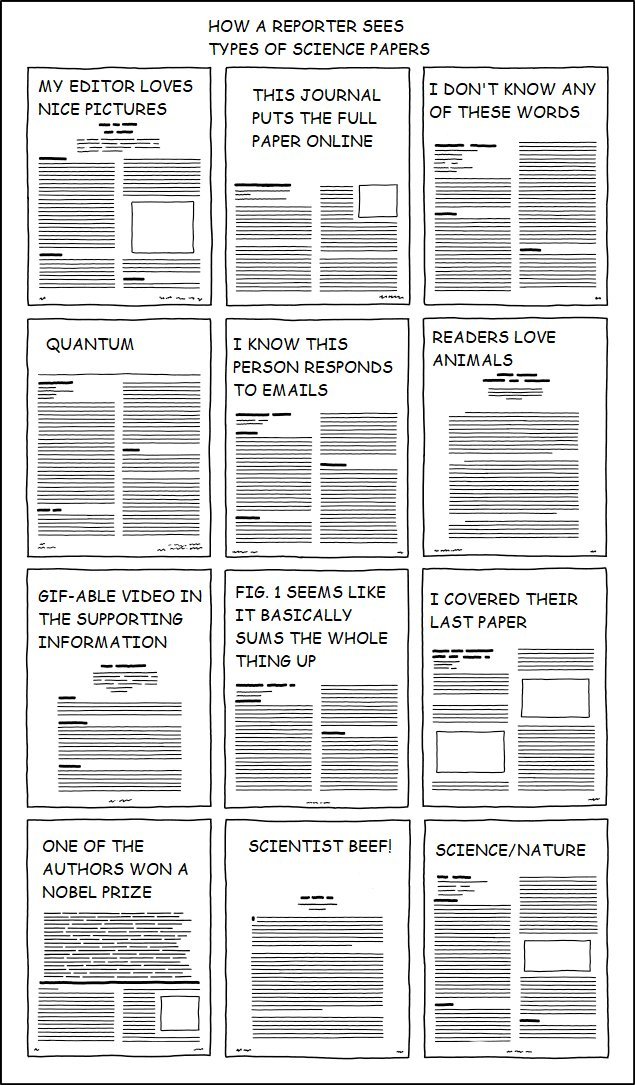
* Fig 1 seems like it basically sums the whole thing up
* Scientist beef!
* I covered their last paper
eof/
* Scientist beef!
* I covered their last paper
eof/
ETA - If you'd like an unrolled version of this thread to read or share, here's a link to it on pluralistic.net, my surveillance-free, ad-free, tracker-free blog:
pluralistic.net/2021/05/02/mic…
pluralistic.net/2021/05/02/mic…
• • •
Missing some Tweet in this thread? You can try to
force a refresh





